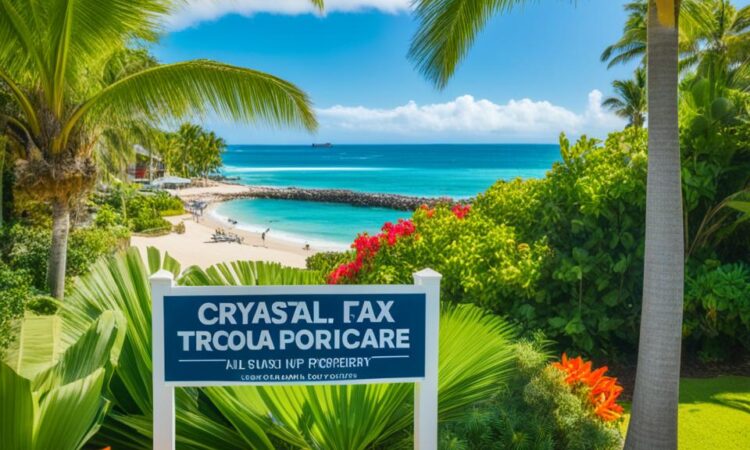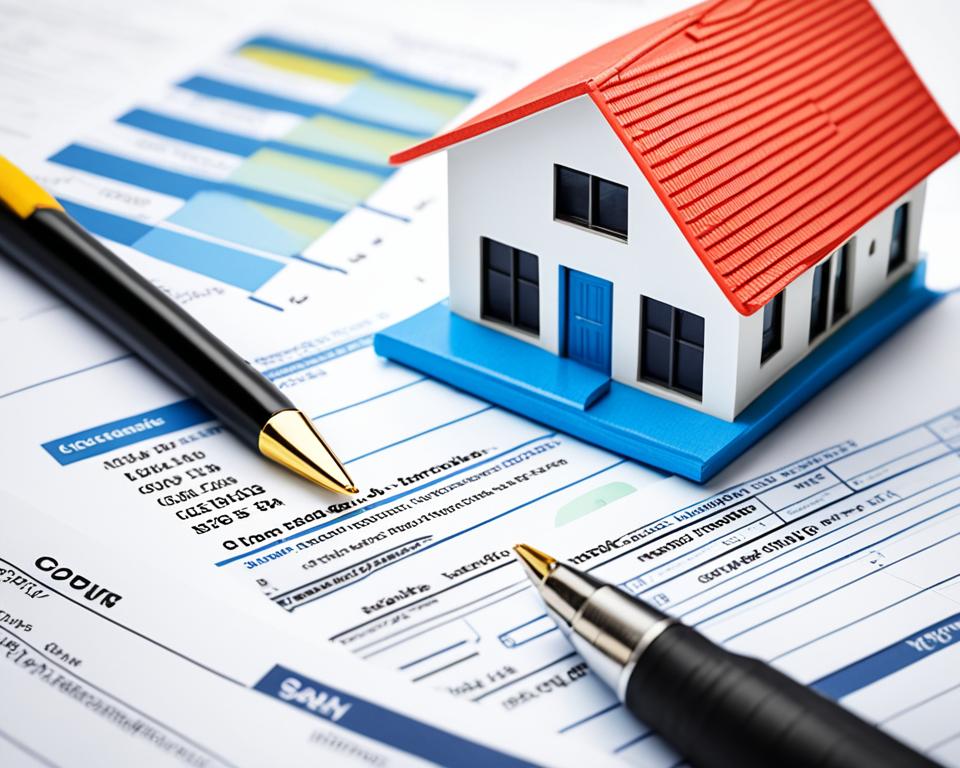
Complete Guide to Property Taxes in Costa Rica – What You Need To Know
Living in Costa Rica, we must understand the various taxes required each year. Failing to pay these taxes can lead to fines. To own a property, you might need to set up a company. This is for easier ownership.
Once you buy a property and get the title, you must begin paying yearly taxes. These are similar to what you pay in your home country. They include Annual Corporation Fees, Solidarity Tax, and others like Rental Income Tax and Property Taxes.
Key Takeaways
- Expats in Costa Rica must be aware of various annual property-related taxes, including corporation fees, rental income tax, and property taxes.
- The corporate tax in Costa Rica is calculated as a percentage of the monthly base salary, ranging from 25% to 50% depending on the company’s gross revenue.
- Costa Rica has a luxury tax on high-value homes, with a threshold of $233,900 in 2023 and rates ranging from 0.25% to 0.55% based on the property’s value.
- Property taxes in Costa Rica are low, at 0.25% of the property’s purchase price or assessed value, but there are also transfer taxes ranging from 1% to 5% on property transactions.
- Rental income from properties in Costa Rica is taxed at a flat rate of 15% on 85% of the gross rental income, with some exceptions for owners with employees.
Introduction to Property Taxes in Costa Rica
If you own property in Costa Rica, understanding property ownership costs in costa rica is crucial. You must know about tax obligations for property owners in costa rica and real estate taxation in costa rica. This knowledge helps you follow costa rica tax laws for property correctly and on time.
Importance of Understanding Property Tax Obligations
Knowing about property transfer taxes costa rica, property valuation for taxation costa rica, and annual property taxes costa rica is important. It’s vital for those who own homes or invest. Learning the property tax rates costa rica, property tax exemptions costa rica, and property tax payment costa rica can lower what you owe. It also helps keep you within the rules.
Overview of Different Types of Property Taxes
Property taxes in Costa Rica include yearly costs, transfer fees, luxury taxes, and rental income taxes. Property tax consultants costa rica can offer advice. They can help you deal with these various tax duties and meet real estate taxation in costa rica rules.

Annual Corporate Taxes
In Costa Rica, how much a company pays in taxes changes based on its business activity. If a company isn’t active, it pays around $120 each year in corporate taxes. But, for those that are active, the amount depends on their earnings. The rate is set by the government as a cut of a government worker’s base salary, from 15% to 50%, based on how much money the company makes.
Tax Rates for Inactive and Active Corporations
Companies making less than 120 times the base salary pay a tax of 25% of the base salary each year. Meanwhile, those making more than 280 times the base salary pay a steeper tax of 50% of the base salary.
Penalties for Non-Compliance
Not following Costa Rica’s tax rules can lead to harsh consequences. If a company doesn’t report its taxes or gives wrong information, the penalties can be serious. They might have to pay up to ten times the amount they owe for not reporting, and five times what’s owed if the numbers are wrong. Be sure your business knows about costa rica property valuation for tax purposes, costa rica tax deductions for homeowners, and costa rica property transfer taxes to stay out of trouble.
| Tax Type | Inactive Companies | Active Companies |
|---|---|---|
| Corporate Tax | $120 per year | 15% – 50% of government employee’s base salary |
| Luxury/Solidarity Tax | N/A | 0.25% – 0.55% on high-value properties |
| Rental Income Tax | N/A | 15% on 85% of rental income |
| Property Tax | N/A | 0.25% of property value |
| Penalties for Non-Compliance | Up to 10 times the owed tax | Up to 10 times the owed tax |
Property Taxes Costa Rica
Property taxes in Costa Rica are lower compared to the US or Canada. You pay a tax of 0.25% of the property’s purchase price. This is the same for the value given by the National Registry.
Every five years, you should get your property’s value checked. If you skip this, you might have to pay a fine. The municipality could also decide your property’s value. This could mean more taxes for you.
In Costa Rica, you also pay for garbage collection along with your property taxes. Transfer taxes, between 1% to 5% of the property’s sale price, apply to sales transactions.
Calculating Property Tax Based on Assessed Value
In Costa Rica, your property tax is based on a value set by the National Registry. Owners need to reassess their property every five years. This makes sure you’re only paying taxes on the right amount.
If owners don’t keep the assessed value up-to-date, the municipality might step in. They could assign their own value, leading to potentially higher taxes and fines.
Exemptions and Deductions for Property Owners
Costa Rica offers deductions and exemptions for property owners. This can help lower their tax bill. Owners can get a break for living in their home, and for making it better through renovations.
Depending on the property and situation, some owners might get tax credits. These reduce their tax due or provide other benefits.
Deadlines and Penalties for Late Payments
In Costa Rica, property taxes are due every January 15th. Missing this deadline means facing late fees and interest. The government might also take legal steps against you.
To avoid extra costs and legal problems, always pay your property taxes on time.
| Key Metric | Value |
|---|---|
| Property Tax Rate | 0.25% of purchase price or assessed value |
| Property Assessment Interval | Every 5 years |
| Transfer Tax Range | 1% to 5% of transaction value |
| Luxury Tax Threshold | ₡148,000,000 (approx. $233,900) |
| Luxury Tax Rates | 0.25% to 0.55% based on property value |

Luxury Tax on High-Value Properties
In Costa Rica, you need to know about the luxury tax, also called the Solidarity Tax. It affects expensive homes and properties. This tax started in 2009 to support housing programs and help the poor. The luxury tax applies to the value of the building and its upgrades, not the land’s value.
Threshold for Luxury Tax Applicability
The luxury tax limit for 2023 is 133,148,400 colones, about $233,900 USD. If your property in Costa Rica — including the house, condo, or any upgrades — is worth more, you must pay this tax.
Tax Rates Based on Property Value
In Costa Rica, the luxury tax depends on your property’s total worth. It can be between 0.25% and 0.55% of your property’s value. The more your property is worth, the higher the tax rate. This tax is due each year by January 15th to avoid fines or other actions.
It’s crucial for property owners, expats, and retirees in Costa Rica to know about the luxury tax. This knowledge helps in following the local tax laws correctly.

Rental Income Tax for Non-Resident Owners
If you’re a foreign investor in Costa Rica, understanding property tax is crucial. The country made big changes to the tax system recently, affecting those who own property but don’t live there.
Tax Rate on Net Rental Income
Now, all foreign investors must pay a 3% tax on their property’s value. This includes homes and business spaces. There’s also a 1% tax on the money you make from renting out your property. Any property sales taxes are a separate charge.
Filing Requirements and Deadlines
Foreign investors need to keep up with Costa Rica’s property tax laws. By knowing the local tax rules and updates, you can reduce your tax burden. Staying informed is key to paying less in taxes.

Conclusion
Property taxes provide money for Costa Rica’s vital services, like schools and roads. Although these taxes are often lower than in other places, they are still a big cost for homeowners. It’s key for property owners to keep up with tax laws, use any tax breaks, and never miss a payment to avoid fines.
Investors can benefit from Costa Rica’s real estate while reducing their tax load with smart planning. Staying informed on property tax laws, property transfer taxes, property tax rates, property tax exemptions, property tax assessment, property tax payment, property tax deductions, and property tax consultants is crucial. This knowledge helps owners confidently work in Costa Rica’s real estate and get the most from their investment.
Call Now To Become a Private Lender With GAP Investments Today
At GAP Investments, we’re here to help you manage property taxes in Costa Rica. Our experts offer advice and support to cut your tax costs and boost your profits. Contact us to find out how we can assist you in the Costa Rican real estate market.
FAQ
What are the main taxes property owners in Costa Rica may encounter?
How are corporate taxes calculated in Costa Rica?
What is the luxury tax or solidarity tax on high-value homes in Costa Rica?
How are property taxes calculated in Costa Rica?
What are the taxes on rental income from a vacation home or rental property in Costa Rica?
What are the tax implications for foreign investors in Costa Rica?
Source Links
- https://www.specialplacesofcostarica.com/property-management/costa-rica-taxes/
- https://www.coldwellbankertamarindo.com/article/understanding-property-taxes-in-costa-rica
- https://pirielegal.com/property-taxes-costa-rica/
- https://taxsummaries.pwc.com/costa-rica/corporate/other-taxes
- https://www.tresamigos-cr.com/faq
- https://www.livingcostarica.com/costa-rica-real-estate-topics/where-and-how-to-pay-the-costa-rica-corporation-tax/
- https://www.costarican-american-connection.com/annual-taxes-and-filing-requirements-in-costa-rica
- https://rebeccaclower.com/costa-rica-living/costa-rica-taxes-101-property-import-income-vat-taxes
- https://gapinvestments.com/en/costa-rica-investments/
- https://bluewaterpropertiesofcostarica.com/blog/costa-rica-property-tax-calculate-municipal-luxury-tax/
- https://quatro.legal/costa-rica-tax-laws-three-common-mistakes-about-the-luxury-tax/
- https://gapinvestments.com/en/faq/
- https://gapinvestments.com/en/inner-circle/
- https://greencr.com/tax-requirements-and-compliance-for-vacation-rentals/
- https://costaricachristies.com/blog/property-taxes-in-costa-rica-one-more-reason-to-move-here
- https://livingcostarica.com/costa-rica-real-estate-topics/faq-property-tax-and-other-taxes-to-pay-when-buying-property-in-costa-rica/
Article by Glenn Tellier (Founder of CRIE and Grupo Gap)
